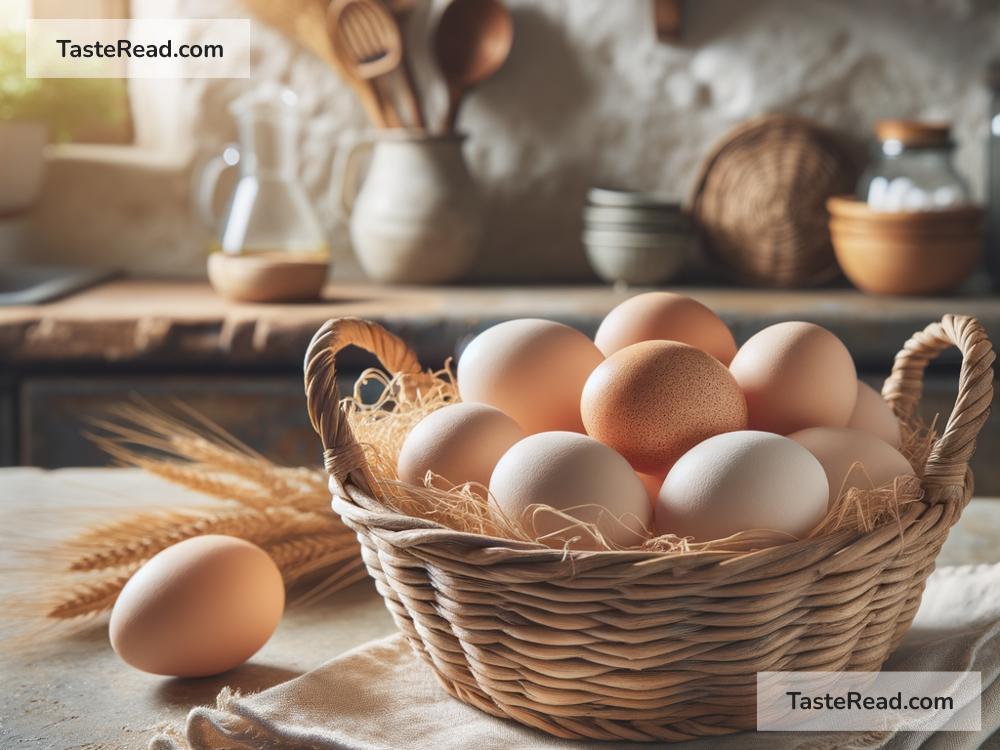How to Choose Free-Range Duck Eggs for Recipes
When you’re strolling through the market or browsing your local farmer’s market, you might come across free-range duck eggs and wonder, “Are these right for my recipe?” Great news! Duck eggs can be a fantastic choice for many dishes, offering a richer flavor and more nutrition than chicken eggs. However, picking the perfect free-range duck eggs for your culinary adventures can seem daunting. Fear not! This guide will simplify the process, ensuring that you make the best choice for your kitchen creations.
Understanding Free-Range Duck Eggs
First things first, what exactly does free-range mean? Free-range ducks are given the freedom to roam outdoors, foraging for their natural diet. This lifestyle not only results in happier ducks but also produces eggs with superior taste and nutritional profile compared to those from ducks raised in confined spaces.
Duck eggs are quite similar to chicken eggs, but with a few key differences. They’re larger, have thicker shells, and the yolks are larger and richer in flavor. This makes them particularly good for baking, as they can give cakes and pastries a richer, fluffier texture.
How to Choose the Best Free-Range Duck Eggs
Now, let’s dive into what you should look for when choosing free-range duck eggs for your recipes:
-
Freshness is Key: As with any egg, freshness matters. Fresh duck eggs will have a firmer, more vibrant yolk and a clear, thick white. One way to test freshness is to place the egg in a bowl of water. Fresh eggs will sink, while older ones tend to float.
-
Look for Cleanliness: While a bit of dirt is normal, especially for free-range eggs, you want to avoid eggs that are overly dirty or have visible cracks. Minor blemishes are fine, but cracks can let bacteria inside the egg.
-
Size Matters: Duck eggs come in various sizes. Think about what you’re cooking. For precision in baking, medium eggs are usually a good standard. If you’re directly substitifying for chicken eggs, remember that one large duck egg can equal about one and a half large chicken eggs.
-
Consider the Breed: Believe it or not, the breed of duck can impact the flavor of the egg. For instance, Indian Runner and Khaki Campbell ducks are known for their high-quality eggs. If possible, ask the seller about the duck breed and do a little research to find your preferred taste.
-
Ask About Their Diet: The diet of the duck influences the taste and nutrition of the egg. Ducks that forage on a diverse range of plants, insects, and small animals will produce eggs with a richer flavor and possibly better nutrient profile.
-
Check the Color: Duck eggshells can range from white to blue, green, and even black. While the shell color doesn’t affect the taste or quality of the egg inside, it can be an indicator of the breed.
-
Storage and Handling: Once you’ve picked your eggs, be sure to ask the best way to store them. Unlike chicken eggs, many people store duck eggs at room temperature, but this can vary.
Using Duck Eggs in Recipes
Now that you’ve chosen your perfect free-range duck eggs, it’s time to cook! Here are a few tips for using them in recipes:
-
Baking: Due to their larger size and richer yolk, you might need to adjust the number of eggs in a recipe. Start by using one duck egg for every one to one and a half chicken eggs called for.
-
Cooking: Duck eggs have a higher fat content, which makes them excellent for rich, velvety custards and sauces. Just be careful when frying, as their thicker shells mean they need a gentle hand to avoid breaking the yolk.
-
Nutritional Benefits: Rich in omega-3 fatty acids, protein, and vitamins, duck eggs are a nutritious addition to your diet. If you have sensitivity to chicken eggs, you might find duck eggs a delicious alternative.
In conclusion, choosing free-range duck eggs for your recipes doesn’t have to be complicated. With this guide, you’re now equipped to select the best eggs for your culinary needs, ensuring delicious and nutritious dishes. Embrace the richness and unique flavor that duck eggs bring to the table, and happy cooking!


